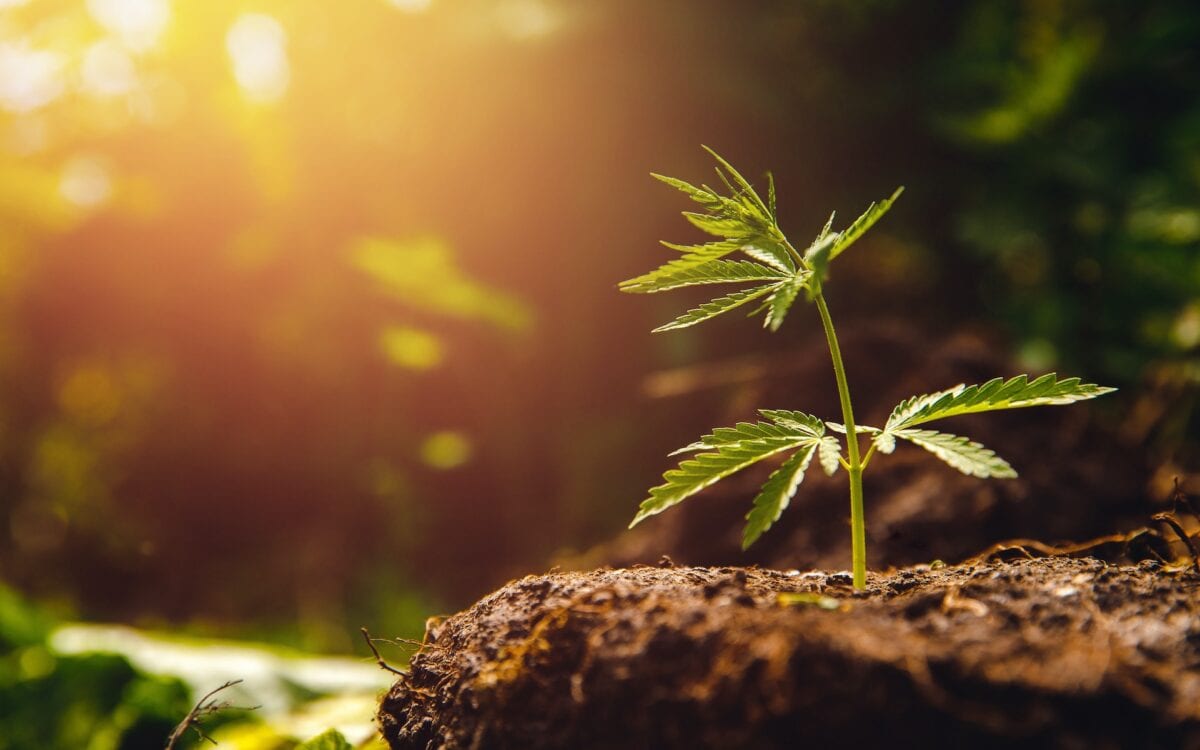The cannabis industry is a growing industry and the fastest growing in the United States. Cannabis sales are expected to reach $99 billion in 2022 and projected to reach upwards of $155 billion in 2026. As more and more states pass legislation to legalize cannabis, there is an abundance of cannabis products on the market. The scale of cannabis grows requires more resources, bringing up environmental and societal impacts to be considered in the process.
The Environmental Impact of the Cannabis Industry
To put into perspective the impacts the cannabis industry can have on the environment, the city of Denver reported in 2018 that nearly 4% of the city’s total electricity usage was a result of cannabis production. A study published in Nature Sustainability estimated that 1.3% of Colorado’s total greenhouse gas emissions were generated by indoor cannabis growing operations. Presently, Denver is seeing a 45% increase in energy electricity demand specifically related to cannabis cultivation.
To compare this to other popular industries, cannabis has the highest footprint per unit as opposed to one serving of beer, wine, or cigarettes. The Journal of Cannabis Research reported that cannabis plants use around twice as much water as maize, soybeans, wheat and wine grapes.
“Indoor cannabis cultivation requires a jaw-dropping amount of energy. It’s an antiquated remnant from prohibition that is neither financially nor environmentally sustainable.” – Amy Zents, Director of Cultivation for Progressive Plant Research
Currently, the biggest challenges the cannabis industry faces are the energy efficiency, waste management, and water usage required to grow plants. It is projected that by 2025, the cannabis industry will see an 86% rise in water use. The cultivation output is attempting to keep up with the growing demand for cannabis, as it is used both medicinally and recreationally, while simultaneously needing to minimize the impact of resources used. With the cannabis industry still being considered in its infancy, this is an important time for pacemakers to begin to educate and ingrain best practices in their cannabis operations.
Creating a Sustainable Future for Cannabis
Through the use of data and science backed technology, the cannabis industry has a hope for a sustainable future. Sustainability will need to be a priority in every part of the industry, from production to packaging to the supply chain. Understanding the amount of resources used to make a cannabis product will vary from business to business, and so it falls in the hands of the establishments to measure and report on their metrics.
Unfortunately, with many small businesses in their early stages, their priorities are often focused on getting the operation up and running, as opposed to understanding the challenges of environmental impact or the opportunities available in sustainable grows. When comparing indoor cultivation to greenhouse growing sites, there are both economic and environmental benefits to the latter. The numbers don’t lie, and greenhouses or hybrid growing sites can require 134 kilowatt hours per square foot, versus 262 for indoor cultivation.
Along with education and acquiring production data metrics, there are a number of ways to achieve a more sustainable cannabis industry.
To start, cultivators should focus on optimizing their energy use. This can be done by upgrading equipment, something that ends up being cost efficient over time, or analyzing performance numbers to see where there is room for improvement in an operation. Identifying trends in business metrics allows for opportunities to improve on energy efficiency.
Understanding and utilizing the technological innovations available is another circumstance for sustainable improvements. Companies often market products that can lower costs and enhance production, for example LED lighting systems with sensors and in depth control options to better regulate grows or switching to solar panels on-site. Technology like this is becoming more and more available, and cultivators are waking up to the realization that these assets can help them not only yield more product but also reduce their energy costs.
“Through the use of energy-efficient equipment, integrated controls, and system automation, along with strategic energy management and data analysis, we have reduced our total energy use by over 50%.” – Shawn Cogan, Facilities Director for Progressive Plant Research
Energy and water usage aren’t the only sustainability issues cannabis and hemp farmers need to consider. Waste management also poses a huge environmental threat. Chemical waste and pesticides used on crops end up seeping into waterways, causing serious harm. Leveraging an understanding of the plant’s biology data during plant selection can improve agronomic traits, including lower risk of pests, thus resulting in less pesticides needed. Another best practice is to really research the nutrients used for cannabis cultivation. Product knowledge is an important step in ensuring the safest and most sustainable options are used in the production process.
In order to see a truly sustainable future in cannabis, it will require an industry wide effort. Widespread shared ideology on the importance of these practices (energy efficiency, waste reduction, utilizing technologies, etc.) and an implementation of said solutions is the key to success.
How Consumers Can Help
As a consumer, you can speak with your dollar by shopping from brand’s that prioritize environmental concerns in their cannabis operation. Many businesses market themselves as sustainable and organic, and in some occasions may be greenwashing, so doing your due diligence to confirm these statements are true can help ensure you are purchasing from a brand you can trust.
At Realm of Caring we have a list of Supported Brands on our website. These products have passed our strict quality control guidelines and it is with confidence that we recommend them to you.



